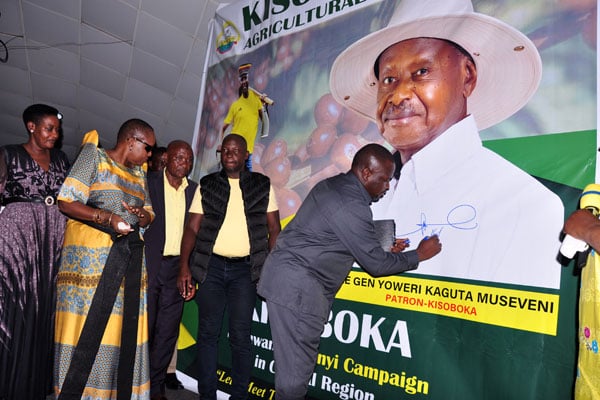Reactionary wealth creation plans will not alleviate poverty
In my last commentary on this subject, I stated that the NRM wealth creation initiatives and poverty alleviation programmes have actually generated more poverty instead of eliminating it.
In many years of community development and health promotion work, I came to a personal realisation that it is not possible to alleviate poverty in Uganda. Poverty is an impersonal experience. It is a relative phenomenon just like energy.
Poverty alleviation, therefore, starts from the person and interpersonal factors in intricate reference to their environments. This position requires a deeper analysis of what African poverty means, and the variations in its manifestations, as well as the phenomenological experiences of those who are afflicted by it.
Most of the poverty that we endure in Uganda are created by socially and historically entrenched inequities resulting from bad politics. Social evils such as sectarianism, nepotism, tribalism, etc., that drive our politics, are also the bedrock of nationwide inequities that generate and sustain poverty.
No matter how much money one places in the hands of the impoverished victims of our unequal society, poverty will not get alleviated, least, eliminated.
To eliminate poverty, we have to address structural inequities and inequalities entrenched in society by history with attendant bad politics without necessarily placing improved seeds, animal breeds, or brown envelop money in the hands of the impoverished. Empowered citizens, when given an equitable and equal society, can ably thrive on their own with least intrusion into the private space by their government.
This partially explains a position I took in an article that most of the NRM wealth creation programmes are reactionary, not well thought through, and are designed to pander to sentimentalism and/or mere politicking.
When I review the economic policies of UPC, I can now understand why Dr. Milton Obote was able to deposit concrete development in Uganda. UPC as a party presents to the people of Uganda a tangible, well thoughtout panacea to most of the social, political and economic questions of this day.
Until you speak to the common man, you would not easily realise how shallow the so-called ideology of NRM is in respect to a sustainable environment, industrialisation, and employment. For instance, given a UPC government policy approach, the Operation Wealth Creation could not have become what it is – an instrument of partisan political mobilisation.
Under the UPC economic policies, the Uganda Development Corporation (UDC) managed all monies intended to spur growth in critical areas of the economy. Nationals had access to this money based on merit of their prepositions, and whether it addressed a critical area of the economy or not. Today, to access a loan, or government assistance, one needs the guardianship of someone high up there. Moreover, the recommendation comes fully loaded with conditions for kickbacks. And possibility of such monies are only available to NRM supporters.
Under the UPC, there was an emphasis on local investments – state enterprises. Our agro-based industries attended to the farmers’ needs. Farmer’s cooperatives ensured that farmers were safeguarded from the vagaries of the market, while the government ensured that value was added to farm produce and sold in international markets.
In the end, real wealth was distributed equitably to the rural folk through a sustainable structure to reach where 83 per cent of the population resides. The cooperatives and UDC were instruments of equity that enabled resources to reach those who needed it the most without political patronage.
Therefore, without a proper structure, the wealth creation programmes will continue to flop, generate poverty, frustration, and anguish among the rural folk. The obsession with foreign investors only attests to the real problem of this country.
It reveals that the country has no internal capacity to industrialise. The country lacks properly qualified blue-collar workers to sustain industrialisation.
It is truly unbecoming that our farmers now have to rely on Korean or Iranian investors to get their fruits, flowers and vegetables processed. Let us start by reinventing co-operatives and supporting cooperative movements.
Mr Komakech is a Ugandan social critic and political analyst based in Canada. [email protected]




